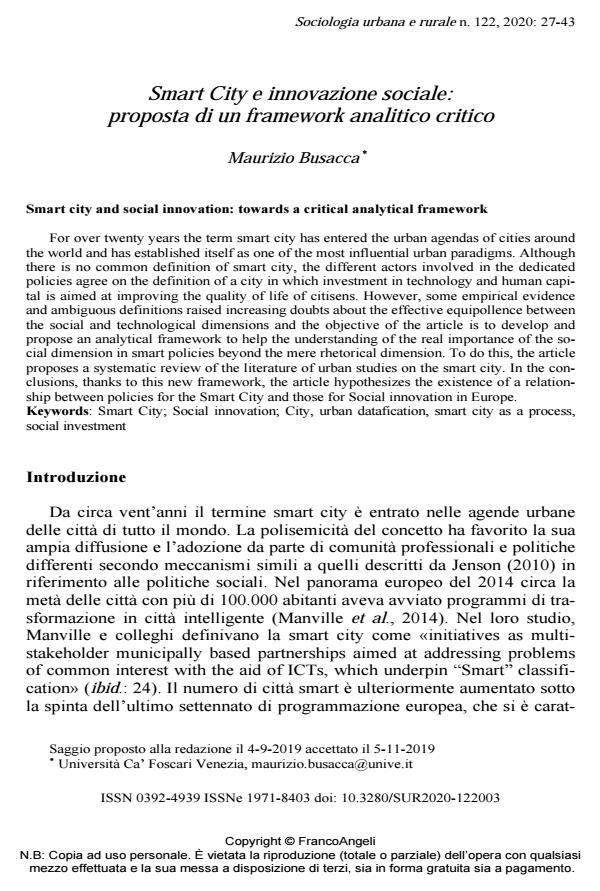Smart City e innovazione sociale: proposta di un framework analitico critico
Titolo Rivista SOCIOLOGIA URBANA E RURALE
Autori/Curatori Maurizio Busacca
Anno di pubblicazione 2020 Fascicolo 2020/122
Lingua Italiano Numero pagine 17 P. 27-43 Dimensione file 223 KB
DOI 10.3280/SUR2020-122003
Il DOI è il codice a barre della proprietà intellettuale: per saperne di più
clicca qui
Qui sotto puoi vedere in anteprima la prima pagina di questo articolo.
Se questo articolo ti interessa, lo puoi acquistare (e scaricare in formato pdf) seguendo le facili indicazioni per acquistare il download credit. Acquista Download Credits per scaricare questo Articolo in formato PDF

FrancoAngeli è membro della Publishers International Linking Association, Inc (PILA), associazione indipendente e non profit per facilitare (attraverso i servizi tecnologici implementati da CrossRef.org) l’accesso degli studiosi ai contenuti digitali nelle pubblicazioni professionali e scientifiche.
For over twenty years the term smart city has entered the urban agendas of cities around the world and has established itself as one of the most influential urban paradigms. Although there is no common definition of smart city, the different actors involved in the dedicated poli-cies agree on the definition of a city in which investment in technology and human capital is aimed at improving the quality of life of citisens. However, some empirical evidence and am-biguous definitions raised increasing doubts about the effective equipollence between the so-cial and technological dimensions and the objective of the article is to develop and propose an analytical framework to help the understanding of the real importance of the social dimension in smart policies beyond the mere rhetorical dimension. To do this, the article proposes a sys-tematic review of the literature of urban studies on the smart city. In the conclusions, thanks to this new framework, the article hypothesizes the existence of a relationship between policies for the Smart City and those for Social innovation in Europe.
Parole chiave:Smart City; Social innovation; City, urban datafication, smart city as a process, social investment
Maurizio Busacca, Smart City e innovazione sociale: proposta di un framework analitico critico in "SOCIOLOGIA URBANA E RURALE" 122/2020, pp 27-43, DOI: 10.3280/SUR2020-122003